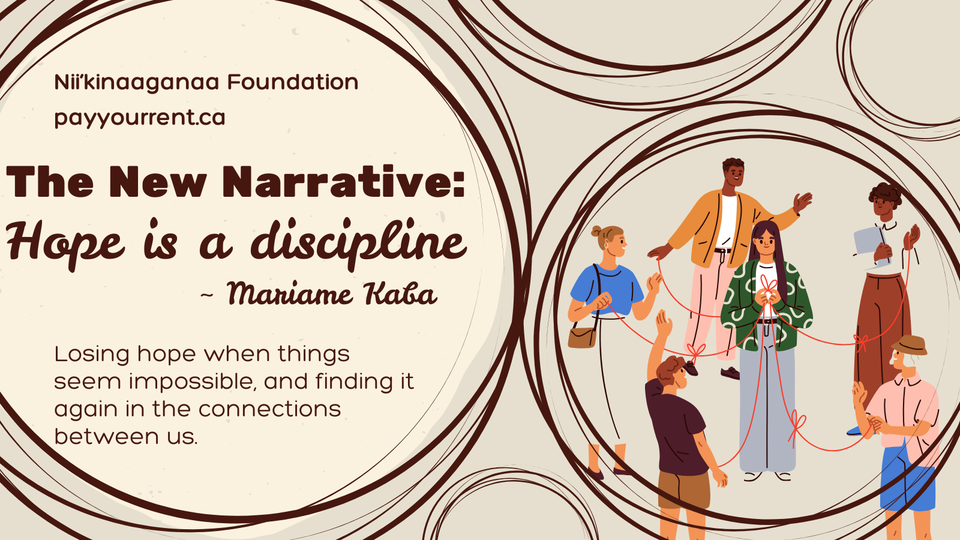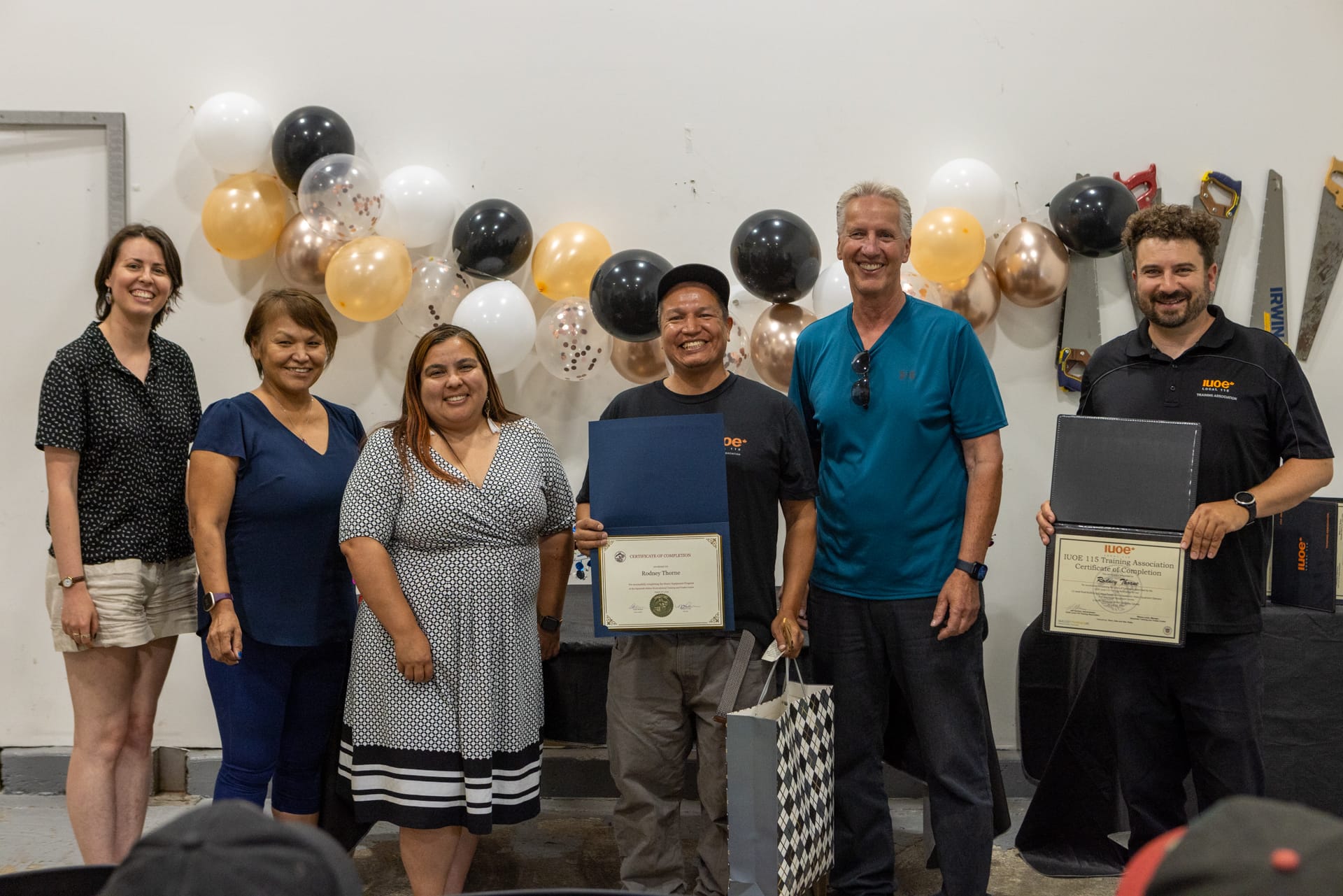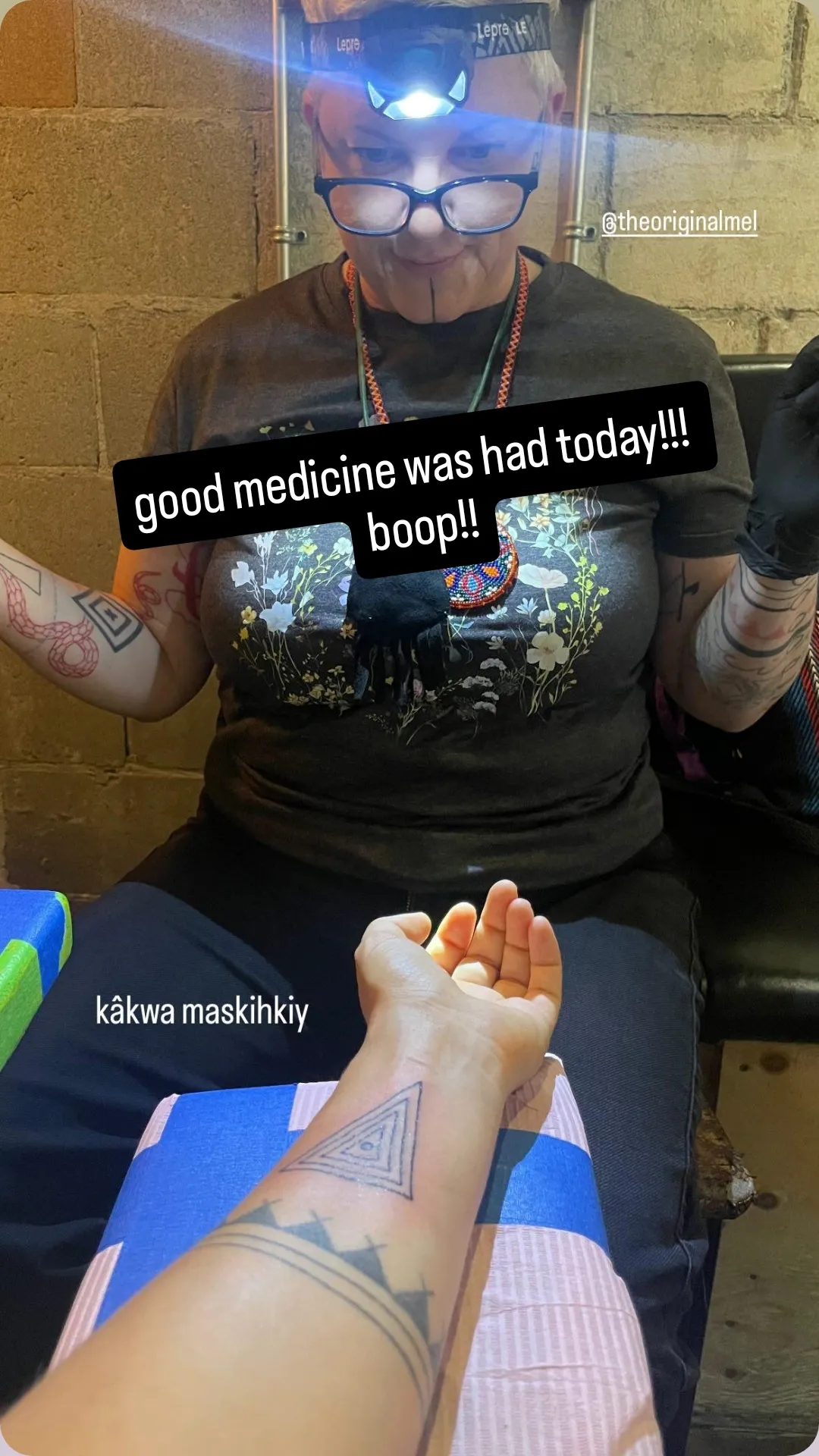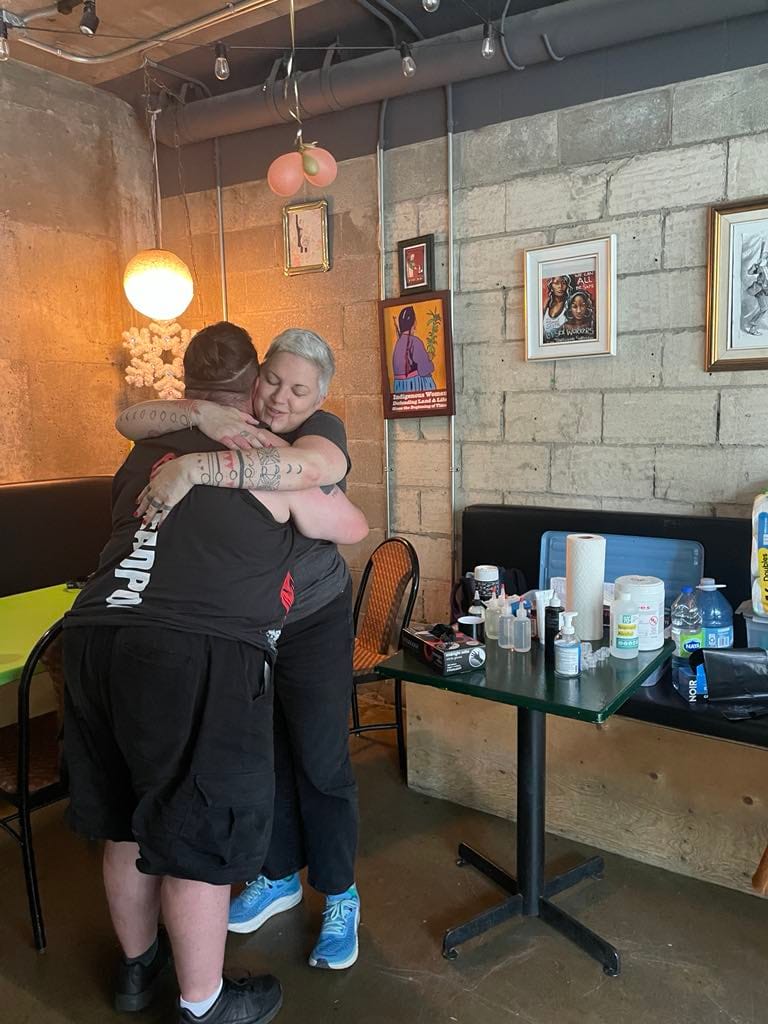The New Narrative

Forwarding this email, or posting it on social media along with some words about why you support us helps to expand our reach!
As someone who writes a newsletter espousing the importance of mutual aid, I’m ashamed to admit that in the five years I’ve been at my current apartment, I’ve only met one of my neighbours (not counting the ones I share a thermostat with). I smile at the others, but I don’t know anything about them beyond a few surface-level observations (for example: there's one man who has a parrot named Rocky and the two go up and down the street singing Celine Dion songs together). When I moved in, I had every intention of meeting and getting to know them, it just never happened. To put it in more privileged terms: it was never a priority.
Until I read this sobering David Suzuki interview.
I had heard friends talk about this interview but did my best to avoid it until I had the stomach. The TL;DR is that one of the world's most beloved and (formerly) hopeful environmental justice activists now believes humanity has lost its fight against climate change and that it’s too late to address and basically we’re all doomed because “we have failed to shift the narrative.”
It was a hard read—but not a surprising one. With the mountains of scientific evidence we have now, it’s clear that anyone who denies the scale or reality of climate change is either 1) more afraid of it than those of us who acknowledge it, 2) profiting from it, or 3) unwilling to give up certain comforts, conveniences, or luxuries for the survival of the planet (not that the onus to solve a crisis caused by industrial and institutional greed falls solely on individual people—that’s a byproduct of decades of Big Oil propaganda).
In June, two First Nations communities in Northern Ontario declared states of emergency due to wildfires. In July, the entire province of Manitoba followed suit. Two weeks ago, Montreal had the worst air quality in the world. Merde. And now, Environment Canada is recommending “limiting time outdoors”—something those who live and work outside don’t have the luxury of doing. If we’re not already cooked, we are certainly cooking and Suzuki rightly pins the worsening collapse on politics and cancerous economic growth—which is to say neoliberal, capitalist Western governments:
The focus on politics, economics, and law are all destined to fail because they are based around humans. They’re designed to guide humans, but we’ve left out the foundation of our existence, which is nature, clean air, pure water, rich soil, food, and sunlight. That’s the foundation of the way we live and, when we construct legal, economic and political systems, they have to be built around protecting those very things, but they’re not.
It’s been made abundantly clear that the government is ill-equipped and often unwilling to meet the needs of the people and the planet (Carney, if Bill C-5 doesn’t haunt you some day, I will eat my hat). Waiting for those in power to save us is no longer an option, for corrupted power will never truly save anything or anyone that doesn’t promise to maintain the same structure of corruption (something no one understands more than the Indigenous people who continue to be brutalized and erased by the colonial governments that occupy them and pursue infinite extraction of finite resources on their land). When these structures reveal their inability or unwillingness to adapt, mutual aid reminds us that we can (providing we take the time to meet our neighbours).
But adaptation is not enough.
In her book, On Fire Naomi Klein writes: “During disasters, you hear a lot of praise for human resilience. And we are a remarkably resilient species. But that's not always good. It seems a great many of us can get used to almost anything, even the steady annihilation of our own habitat.” And I can't help but think of this now well-known tweet from @PerthShireMags: “Climate change will manifest as a series of disasters viewed through phones with footage that gets closer and closer to where you live until you're the one filming it.” It’s a frightening articulation for two reasons: the first having to do with the impending disasters that threaten to come for us all, and secondly; it implies a kind of normalization. It’s the “until” that suggests that until things get bad for all of us (in the Global North), all we will have done is watched. Watched community wildfire evacuations become commonplace, watched floods continue to upend entire towns, watched more climate refugees tragically drown attempting to sail towards stability.
In the same way we cannot normalize disasters (either by just looking or looking away), we cannot normalize institutional inaction and murderous policy written from the desks of those responsible for these disasters. In an interview in 2021, Suzuki said “there are going to be pipelines blown up if our leaders don't pay attention to what's going on.” After getting heat (from some real losers, I might add) for “inciting violence,” he responded saying the comment was made out of frustration.
Hmm, I wonder what he was frustrated by? Could it have been that half a century of non-violent protest has failed to move the needle on climate policy in a meaningful way? Could it be that those who profess to lead us are actually leading us toward our end—an act of violence in and of itself? Could it be the deep pockets of the fossil fuel industry and its lobbyists that make any kind of non-violent activism feel like a Sisyphean task?
There’s a reason he said what he said.
Einstein’s definition of insanity is doing the same thing over and over again and expecting different results. In his book, How to Blow Up a Pipeline Andreas Malm writes: “At what point do we escalate? When do we conclude that the time has come to try something different? When do we start physically attacking the things that consume our planet and destroy them with our own hands? Is there a good reason we have waited this long?”
When it comes to climate change, we may have failed to shift the narrative, but why does it have to be shifted? Why can’t it be crossed out and rewritten altogether? Under the oppression of colonialism, reform will never be the answer because it implies some trace of the thing that’s killing us will remain. Suzuki agrees: “We need revolution.” It’s time for a new narrative. But a new narrative requires two things: imagination and solidarity. Malm writes: “[the] more people who tell us that a radical reorientation is 'scarcely imaginable', the less imaginable it will be." And in his book Socialism… Seriously Danny Katch writes: “some imagination is necessary to see how we might get to a hopeful future from a dismal present.”
The seeds of imagination take root in solidarity and are watered by acts of care—something Suzuki urges us toward, albeit apocalyptically, at the end of the iPolitics interview:
[W]hat we’ve got to do now is hunker down. The units of survival are going to be local communities, so I’m urging local communities to get together… Governments will not be able to respond on the scale or speed that is needed for… emergencies, so… [f]ind out who on your block can’t walk because you’re going to have to deal with that. Who has wheelchairs? Who has fire extinguishers? Where is the available water? Do you have batteries or generators? Start assessing the routes of escape. You’re going to have to inventory your community, and that’s really what we have to start doing now.
Suzuki pushes mutual aid for survival’s sake—and that’s a start; but it also has the ability to reorganize the world. Any kind of revolution is contingent on solidarity and any kind of solidarity depends on relationship building. So we can either continue propping up a system designed to fail us, or we can pursue a different way to live altogether: all together.
So yes, the interview was a hard read. When one of our most trusted voices is steeped in resignation, it’s tempting to let cynicism and despair win. And yes, the fires (741 of them in so-called Canada alone) and floods and grief are real—but so is the growing movement of care being organized in living rooms, parks, and communities across the world. Just because it’s too late to change everything doesn’t mean it’s too late to change something.
As more and more smoke fills the sky, we must become each other’s fresh air by treating each crisis not as a reason to turn inward, but as an opportunity to turn toward one another.
It’s never too late to care. And that might be our greatest hope.
Now let’s meet two of the organizers we support who are growing the seeds of imagination through acts of care.
Carrie Findlay is a Squamish nation member who was born in north Vancouver. She works as a Program Officer for the Squamish Nation Training and Trades Centre (TTC), which aims to find full-time work for its Indigenous and Squamish Nation member students by offering them free trades programs, cultural workshops, wellness counselling, and other support services. As Indigenous people continue to be underrepresented in the workforce—a byproduct of systemic discrimination and limited access to education and training—the TTC plays a crucial role in bridging the economic inequities created by the Canadian government.
In her official role, Carrie is able to see how many students struggle with trauma and things like paying everyday bills (especially as the cost of living continues to rise). And as an organizer that Nii’kinaaganaa supports, she’s able to connect with these students and provide them with material assistance—be it food, rent and bill payments, medication, transportation, etc.
Recently, Carrie was able to support Rodney: one of her students who needed housing assistance. Rodney was unhoused, a population deeply impacted by changes we can moderate for ourselves with walls and windows, but with the help of your donations, Carrie was able to put him up at a hotel while she helped him find permanent residence. She was also able to help Seth, another student, pay child support while he was taking the TTC's Heavy Equipment Operator program to better his life and pursue a career that could support his children.


Reflecting on her organizing work, Carrie said “It brings me joy to see my students happy, healthy, and excited for a new journey in life after finishing our programs and being able to get help when they are desperately struggling and in need."
In our last newsletter, “Reconciliation Lite™,” we introduced you to Dr. Mel Lefebvre: a Two-Spirit Michif, Nehiyaw, French, Irish traditional tattoo practitioner, community worker, and First Peoples Studies professor at Concordia. Since Dr. Mel first reached out to us about supporting ancestral skin marking for those who may not have as much accessibility as others, she’s been able to facilitate three tattooing events. The first was for outreach workers, the second for Two-Spirit folks in Montreal, and on July 26, she was able to offer a third event to Indigenous sex workers and their supporters.
Speaking about the success of the most recent offering (which was made possible with the help of your donations), Dr. Mel said:
It was from 11am to 7pm at the Frigo Vert in downtown Montreal. This site is a community run organization that has a full kitchen, bathroom, coffees and teas, and is covered with plants and decolonial artwork. Seven people received markings and in total, we had over 14 people present—including two children! We had drumming, singing, feasting, teachings, and of course, skin marking.


In addition to the profanity warning at the top of the iPolitics Suzuki interview, it says it contains language that some readers might find offensive. For me, it was the total lack of hope (he has since walked it back a bit, but still…). So I’m choosing to end with a more optimistic Suzuki quote. Because if we don’t have hope, we don’t have a chance:
The way we see the world shapes the way we treat it. If a mountain is a deity, not a pile of ore; if a river is one of the veins of the land, not potential irrigation water; if a forest is a sacred grove, not timber; if other species are our biological kin, not resources; or if the planet is our mother, not an opportunity – then we will treat each one with respect. That is the challenge, to look at the world from a different perspective.
Now if you’ll excuse me, I’ve got some neighbours to meet.
Thanks for reading and supporting,
The Nii’kinaaganaa Team
“There is always a community for us to find our way back to, be discovered, or be constructed.”
-Kelly Hayes, "Revolutionary Accompaniment: Holding Each Other When Things Fall Apart"